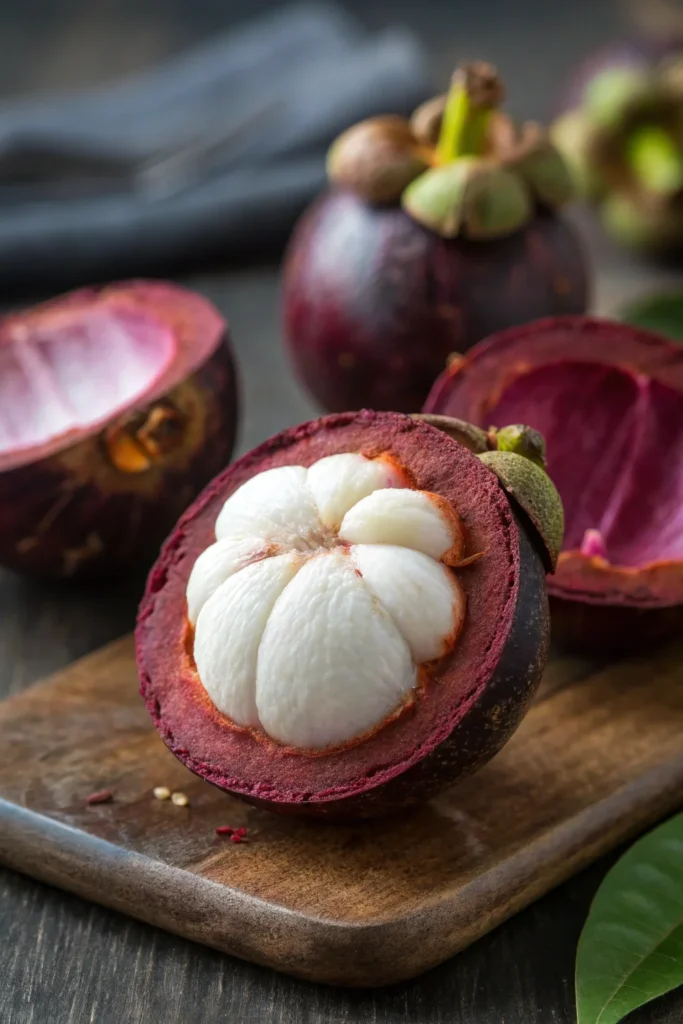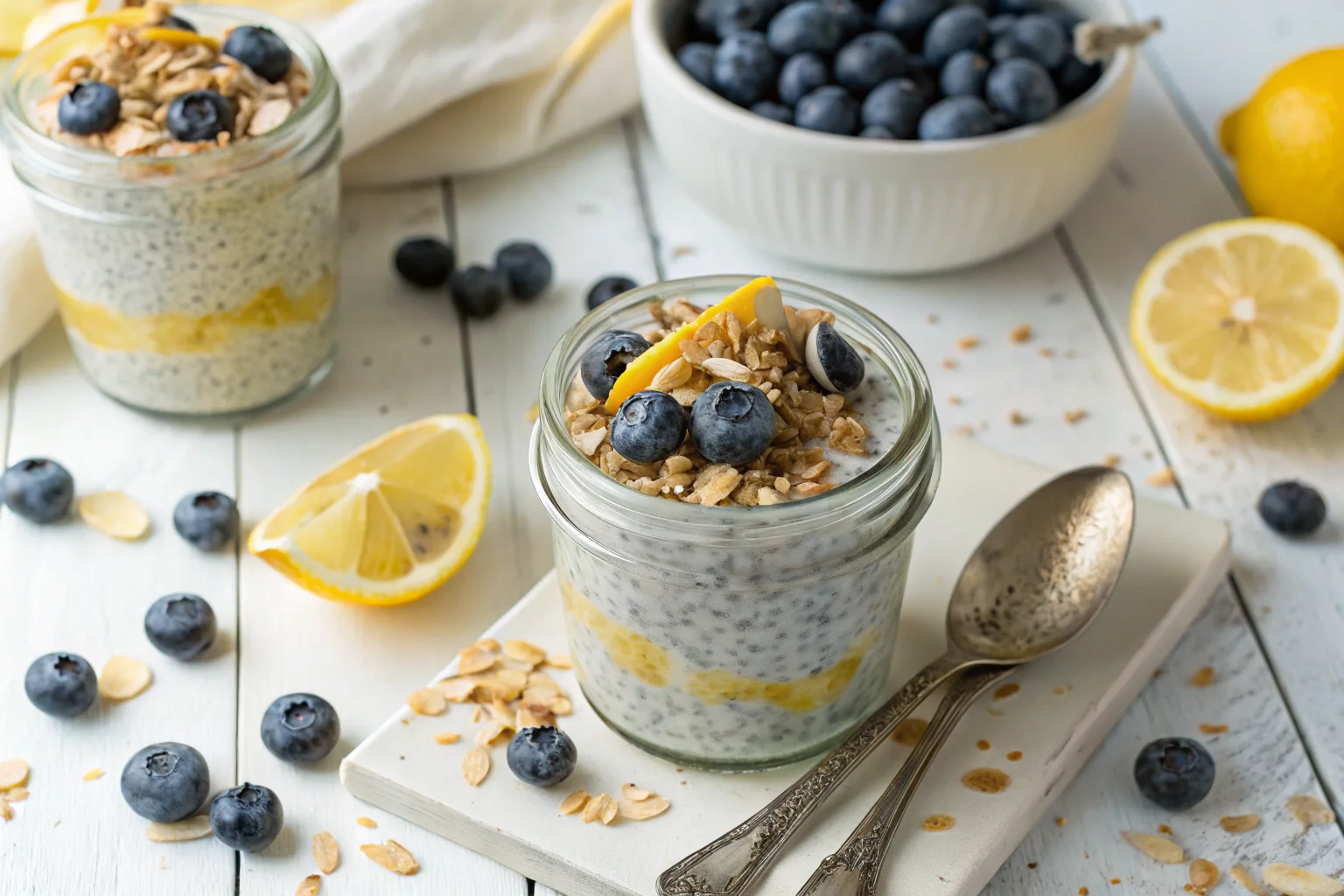Xango juice has gained widespread popularity due to its potential health benefits, but what exactly makes it so special? Derived primarily from mangosteen, a tropical fruit known for its rich antioxidants, Xango juice is touted as a superfood beverage that supports overall well-being.
But what are the health benefits of Xango? Does it live up to the hype? This article dives deep into the science-backed benefits of Xango, from boosting immunity and promoting heart health to supporting digestion and weight management. You’ll also learn about its powerful antioxidant properties, how it can help regulate blood sugar, and whether it has any potential side effects.
Looking for a delicious way to enjoy Xango? Check out this amazing Xango dessert recipe and indulge in a healthy, antioxidant-rich treat!
Let’s start by exploring what Xango is and why it’s considered a nutritional powerhouse.
Table of Contents
ToggleIntroduction to Xango and Its Nutritional Value
What Is Xango?
Xango is a fruit juice supplement made primarily from mangosteen, a tropical fruit native to Southeast Asia. This exotic fruit, often called the “queen of fruits,” has been used in traditional medicine for centuries due to its high antioxidant content and anti-inflammatory properties.
The Origin and Background of Xango
- Xango juice was introduced to the market in the early 2000s as a premium health beverage.
- It is made from whole mangosteen fruit, including the peel, which contains xanthones—potent compounds known for their health benefits.
- The drink quickly gained popularity due to its potential to fight inflammation, improve immunity, and support heart health.
Ingredients and Composition of Xango Juice
- Mangosteen puree: The primary ingredient, rich in antioxidants and xanthones.
- Other fruit extracts: Some blends include additional superfruits like blueberries, raspberries, and cranberries for enhanced nutritional value.
- No artificial preservatives: Most high-quality Xango juices avoid artificial additives, making them a natural and healthy option.
Nutritional Profile of Xango Juice
Drinking Xango juice isn’t just about enjoying a delicious beverage—it’s a nutrient-dense drink packed with essential vitamins and minerals.
Key Vitamins and Minerals Found in Xango
- Vitamin C: Supports the immune system and promotes collagen production for healthier skin.
- B vitamins: Aid in energy production and improve brain function.
- Potassium: Helps regulate blood pressure and maintain hydration.
Antioxidants and Their Role in Health
One of the standout components of Xango juice is its high antioxidant content, primarily from xanthones. These compounds:
- Fight oxidative stress, reducing the risk of chronic diseases.
- Support skin health, slowing down aging and promoting a youthful glow.
- Enhance cellular repair, helping the body recover from daily wear and tear.
With such an impressive nutritional profile, it’s no wonder people turn to Xango for its potential health-boosting properties. But how exactly does it impact the body? In the next section, we’ll dive deeper into its antioxidant benefits and how they contribute to overall well-being.
Antioxidant Benefits of Xango
How Antioxidants Improve Health
One of the primary reasons Xango juice is celebrated as a superfood beverage is its rich antioxidant content. But why are antioxidants so crucial for our health? These powerful compounds help combat oxidative stress, a condition caused by an excess of free radicals in the body. Free radicals can damage cells, leading to inflammation, aging, and chronic diseases.

Role of Xanthones in Disease Prevention
The mangosteen fruit, the key ingredient in Xango juice, contains a unique group of antioxidants called xanthones. These compounds have been extensively studied for their anti-inflammatory and disease-fighting properties. Research suggests that xanthones may:
- Help reduce the risk of heart disease by protecting blood vessels.
- Support brain health by lowering inflammation linked to neurodegenerative diseases.
- Improve immune function, making it easier for the body to fight infections.
Protection Against Oxidative Stress
Everyday activities like exposure to pollution, processed foods, and stress increase oxidative damage in the body. Xango juice, with its high concentration of antioxidants, helps:
- Neutralize free radicals, reducing cell damage.
- Lower inflammation levels, which is linked to conditions like arthritis and diabetes.
- Protect DNA and cellular structures, potentially slowing down aging.
Anti-Aging and Skin Benefits
Did you know that antioxidants play a significant role in skin health and anti-aging? Xango juice provides essential nutrients that nourish the skin from within, making it a favorite among those looking for a natural beauty boost.
Reduction of Wrinkles and Fine Lines
Aging is inevitable, but the process can be slowed down with the right nutrients. The antioxidants in Xango help:
- Reduce collagen breakdown, preventing premature wrinkles.
- Promote skin cell regeneration, giving the skin a more youthful glow.
- Combat sun damage, minimizing hyperpigmentation and fine lines.
Hydration and Skin Elasticity Improvement
Proper hydration is essential for maintaining soft, supple skin. Xango juice contains hydrating nutrients and anti-inflammatory compounds that:
- Enhance skin elasticity, keeping it firm and plump.
- Reduce redness and irritation, making it beneficial for conditions like eczema.
- Help in detoxification, flushing out toxins that lead to breakouts.
By regularly consuming Xango juice, individuals can enjoy healthier, more radiant skin while benefiting from its powerful anti-aging properties.
Xango and Immune System Support
Boosting Immunity with Xango Juice
A strong immune system is essential for preventing illnesses and maintaining overall well-being. So, what are the health benefits of Xango? One of its most notable effects is its ability to enhance the body’s natural defenses.
Strengthening Immune Response
The nutrients found in Xango juice, particularly vitamin C, xanthones, and flavonoids, work together to:
- Stimulate the production of white blood cells, which fight infections.
- Support the body’s ability to repair damaged tissues.
- Improve gut health, where a significant portion of the immune system resides.
Protection Against Infections and Viruses
The antiviral and antibacterial properties of Xango make it an excellent choice for boosting immunity. Studies suggest that consuming mangosteen-based supplements like Xango may:
- Help reduce the severity of colds and flu.
- Protect against bacterial infections, including those affecting the respiratory system.
- Enhance wound healing by promoting faster recovery.
Anti-Inflammatory Properties of Xango
Chronic inflammation is linked to many health conditions, including heart disease, arthritis, and autoimmune disorders. The anti-inflammatory compounds in Xango juice help keep inflammation in check, leading to better overall health.
Reduction of Chronic Inflammation
Inflammation is the body’s natural response to injury or infection, but long-term inflammation can be harmful. Xango juice helps:
- Lower inflammatory markers in the body.
- Reduce joint pain and stiffness, making it beneficial for arthritis sufferers.
- Protect organs from chronic disease, including the liver and kidneys.
Impact on Autoimmune Diseases
Autoimmune diseases occur when the immune system attacks the body’s own cells. Research suggests that the antioxidants and xanthones in Xango may:
- Help regulate immune activity, preventing excessive immune responses.
- Reduce flare-ups in conditions like rheumatoid arthritis and lupus.
- Support gut health, which plays a crucial role in autoimmune regulation.
By incorporating Xango juice into a daily routine, individuals can strengthen their immune defenses while reducing the risk of chronic inflammation-related diseases. Up next, we’ll explore how Xango promotes heart health and circulation.
Xango’s Role in Heart Health
Heart health is a major concern worldwide, with millions affected by cardiovascular diseases. But what are the health benefits of Xango? One of its most significant advantages is its ability to support heart function and improve circulation. Packed with antioxidants, Xango juice helps regulate blood pressure, balance cholesterol levels, and reduce the risk of heart disease.

Cardiovascular Benefits of Xango
Xango juice contains a powerful mix of xanthones, flavonoids, and potassium, all of which contribute to a healthy heart. By drinking Xango regularly, individuals may experience improvements in overall cardiovascular function.
Regulation of Blood Pressure Levels
High blood pressure, or hypertension, is a leading cause of heart disease. The potassium and xanthones in Xango juice help:
- Relax blood vessels, improving circulation.
- Reduce strain on the heart, lowering the risk of heart attacks.
- Balance sodium levels, preventing water retention and swelling.
Improvement in Cholesterol Balance
Maintaining a healthy cholesterol level is essential for heart health. Research suggests that Xango juice may:
- Lower LDL (bad cholesterol), reducing plaque buildup in arteries.
- Increase HDL (good cholesterol), which helps remove excess fat from the bloodstream.
- Prevent oxidative damage to cholesterol, a key factor in heart disease.
How Xango Supports Healthy Circulation
Proper blood flow and circulation are crucial for overall wellness, as they ensure that oxygen and nutrients reach vital organs. Xango juice contains natural compounds that promote better circulation, reducing the risk of strokes and blood clots.
Prevention of Blood Clots
Blood clots can lead to serious conditions like deep vein thrombosis (DVT) and strokes. Xango juice’s anti-inflammatory and blood-thinning properties help:
- Keep arteries clear, reducing the risk of clot formation.
- Improve blood vessel flexibility, preventing blockages.
- Support faster healing of damaged tissues.
Enhancement of Artery Function
Over time, arteries can become stiff and clogged, leading to high blood pressure and heart disease. The antioxidants in Xango:
- Reduce arterial stiffness, improving blood flow.
- Lower inflammation in blood vessels, preventing narrowing.
- Promote endothelial health, ensuring optimal circulation.
Xango for Digestive Health and Gut Wellness
Good digestion is key to overall health, and Xango juice is packed with nutrients that support gut function. From improving digestion to balancing the gut microbiome, this superfruit juice offers multiple digestive benefits.
Improving Gut Microbiome with Xango
A healthy gut microbiome is essential for digestion, immunity, and even mental health. Xango juice contains prebiotics and natural compounds that nourish good bacteria in the gut.
Probiotic Effects of Xango Juice
Unlike traditional probiotics, Xango juice doesn’t contain live bacteria, but it acts as a prebiotic, feeding the good bacteria already in the gut. This helps:
- Improve digestion, reducing bloating and gas.
- Support immune function, since much of the immune system is housed in the gut.
- Enhance nutrient absorption, ensuring the body gets the most from food.
Balancing Digestive Enzymes
Digestive enzymes are crucial for breaking down food, but stress, poor diet, and aging can reduce their effectiveness. The natural enzymes in Xango juice help:
- Break down proteins, fats, and carbohydrates for better digestion.
- Reduce acid reflux and heartburn, improving comfort after meals.
- Promote a healthy gut lining, preventing conditions like leaky gut syndrome.
Relief from Digestive Disorders
For those struggling with digestive issues, Xango juice can be a natural remedy for common conditions.
How Xango Helps with Bloating and IBS
Irritable bowel syndrome (IBS) and bloating can be caused by inflammation and imbalanced gut bacteria. Xango juice helps:
- Reduce gut inflammation, easing discomfort.
- Restore gut flora balance, improving digestion.
- Promote regular bowel movements, reducing constipation.
Role in Preventing Gastric Ulcers
Gastric ulcers are often caused by excess stomach acid and bacterial infections. The anti-inflammatory and antibacterial properties of Xango help:
- Reduce stomach lining irritation, preventing ulcers.
- Fight harmful bacteria like H. pylori, a common cause of ulcers.
- Protect digestive tissues, promoting overall gut health.
Weight Management and Metabolism Support
Many people turn to natural supplements to help with weight loss and metabolism boost, but what are the health benefits of Xango in this area? Xango juice, made from mangosteen and other superfruits, contains compounds that may support fat metabolism, appetite control, and energy production—all of which contribute to healthy weight management.
How Xango Aids in Weight Loss
Maintaining a healthy weight requires a combination of balanced nutrition, regular exercise, and metabolic support. The antioxidants and fiber in Xango juice can play a role in helping the body burn fat more efficiently.
Appetite Control and Satiety
One of the biggest challenges in weight management is controlling cravings and overeating. Xango juice can help by:
- Regulating hunger hormones, making you feel full for longer.
- Reducing sugar cravings, preventing unhealthy snacking.
- Stabilizing blood sugar levels, which can prevent sudden hunger spikes.
Boosting Metabolism Naturally
A slow metabolism makes it harder to burn calories and lose weight. The xanthones and flavonoids in Xango juice support metabolic function by:
- Increasing fat oxidation, helping the body use stored fat for energy.
- Enhancing insulin sensitivity, which prevents fat storage.
- Reducing inflammation, which has been linked to slow metabolism and obesity.
Energy and Performance Enhancement
Lack of energy is a major obstacle for people trying to stay active. Fortunately, Xango juice provides natural compounds that enhance endurance and speed up recovery.
How Xango Supports Workout Recovery
Exercise causes muscle breakdown and oxidative stress, which can lead to fatigue. The antioxidants in Xango help:
- Reduce muscle inflammation, leading to faster recovery.
- Lower oxidative stress, preventing post-workout fatigue.
- Improve oxygen flow to muscles, boosting endurance.
Impact on Stamina and Endurance
Whether you’re an athlete or just trying to stay active, stamina is key. The nutrients in Xango juice work to:
- Support mitochondrial function, the powerhouse of cells responsible for energy production.
- Reduce lactic acid buildup, which delays muscle fatigue.
- Provide sustained energy, keeping you active throughout the day.
Xango and Diabetes Management
Diabetes is one of the fastest-growing health concerns worldwide, and blood sugar control is crucial for overall wellness. But what are the health benefits of Xango for those with diabetes or at risk of developing it? Research suggests that Xango juice may help stabilize glucose levels, improve insulin function, and reduce diabetes-related inflammation.
Regulating Blood Sugar Levels
The antioxidants and natural plant compounds in Xango juice support healthy blood sugar levels in multiple ways.
Effects on Insulin Resistance
Insulin resistance occurs when cells stop responding to insulin, leading to high blood sugar and increased diabetes risk. The xanthones in Xango help:
- Improve insulin sensitivity, allowing cells to absorb glucose more efficiently.
- Reduce inflammation in pancreatic cells, which helps maintain insulin production.
- Lower oxidative stress, preventing further damage to insulin-producing cells.
Glycemic Index and Benefits for Diabetics
Many fruit juices contain high amounts of sugar, but Xango juice has a low glycemic index, meaning it doesn’t cause rapid spikes in blood sugar. This makes it:
- Safer for diabetics who need to manage glucose levels.
- A great alternative to high-sugar beverages like sodas and artificial fruit juices.
- A source of natural energy, without the crash associated with sugary drinks.
How Xango Helps Prevent Type 2 Diabetes
Preventing diabetes requires a healthy lifestyle, balanced diet, and blood sugar management. Xango juice contains natural compounds that may lower the risk of type 2 diabetes.
Role of Antioxidants in Diabetes Prevention
Antioxidants help protect pancreatic cells from oxidative damage, which can lead to insulin dysfunction. The xanthones and flavonoids in Xango juice:
- Support healthy insulin production, keeping blood sugar stable.
- Reduce inflammation, a key factor in the development of type 2 diabetes.
- Improve liver function, which helps regulate glucose metabolism.
Improving Pancreatic Function
The pancreas plays a crucial role in blood sugar control, producing insulin to regulate glucose levels. Xango juice may help:
- Support beta cell function, which is responsible for insulin production.
- Reduce pancreatic inflammation, which can lead to better blood sugar regulation.
- Enhance digestion, preventing unnecessary spikes in glucose.
With its blood sugar-balancing properties, Xango juice is an excellent addition to a diabetes-friendly diet.
Potential Side Effects and Safety Considerations
Xango juice is packed with antioxidants, vitamins, and minerals, making it a popular choice for health-conscious individuals. But before adding it to your daily routine, it’s important to consider its potential side effects and safety concerns. While most people tolerate it well, some may experience adverse reactions, especially if they have allergies or underlying health conditions.
Are There Any Risks to Consuming Xango?
Like any supplement or superfood, Xango juice may not be suitable for everyone. Understanding its possible risks helps consumers make informed choices.
Possible Allergic Reactions
Although rare, some individuals may be allergic to mangosteen, the primary ingredient in Xango juice. Symptoms may include:
- Skin rashes or itching, indicating a mild allergic response.
- Digestive discomfort, such as bloating or nausea.
- Swelling or breathing difficulties, which require immediate medical attention.
If you’re trying Xango juice for the first time, start with a small amount to see how your body reacts.
Safe Consumption Levels
While Xango juice is generally safe, excessive intake may lead to unwanted effects. To avoid complications:
- Stick to the recommended daily dosage (usually a few ounces per day).
- Avoid overconsumption, as too many antioxidants may disrupt natural bodily processes.
- Consult a doctor if using it as a supplement for chronic conditions.
Who Should Avoid Xango?
Certain individuals should be cautious before drinking Xango juice, especially those with specific health conditions or taking medications.
Xango for Pregnant Women and Children
While Xango juice contains many nutrients beneficial for overall health, its effects on pregnant women and young children have not been extensively studied. Therefore:
- Pregnant and breastfeeding women should consult their doctor before consuming Xango.
- Young children should drink it in moderation to avoid any digestive issues.
Interactions with Medications
Because Xango juice has natural blood-thinning properties, it may interact with certain medications, including:
- Anticoagulants (blood thinners) like Warfarin, which could increase bleeding risk.
- Diabetes medications, as Xango may lower blood sugar levels, leading to hypoglycemia.
- Chemotherapy drugs, as antioxidants could interfere with treatment effectiveness.
If you’re on prescription medication, it’s best to check with your healthcare provider before incorporating Xango juice into your diet.
Frequently Asked Questions (FAQs)
When learning about Xango juice, many people wonder: What are the health benefits of Xango? Does it really help with immunity, heart health, and digestion? In this section, we’ll answer the most common questions about this superfruit beverage.
Is Xango Juice Safe for Daily Consumption?
Yes, moderate daily consumption of Xango juice is considered safe for most people. However:
- Stick to the recommended serving size to avoid overconsumption.
- If you have health conditions or take medications, consult your doctor first.
- Listen to your body—if you experience any side effects, reduce or stop consumption.
Can Xango Help with Arthritis Pain?
Xango juice contains powerful anti-inflammatory compounds, including xanthones, which may help:
Reduce joint swelling and stiffness, making movement easier.
Lower inflammation markers, which are linked to arthritis symptoms.
Improve mobility over time, especially with consistent use.
While Xango juice can complement arthritis management, it shouldn’t replace doctor-recommended treatments.
Does Xango Juice Interact with Medications?
Yes, Xango may interact with certain medications, particularly:
Blood thinners, increasing the risk of excessive bleeding.
Diabetes medications, potentially lowering blood sugar too much.
Chemotherapy drugs, which could be affected by high antioxidant levels.
Always consult a healthcare professional if you’re taking medication and considering Xango juice.
How Does Xango Compare to Other Superfruit Juices?
Xango juice stands out because of its high xanthone content, which is unique to mangosteen. Compared to other popular superfruit juices, it:
Has stronger anti-inflammatory effects than acai or goji berry juice.
Provides more potent antioxidants than pomegranate juice.
Supports multiple aspects of health, including immunity, heart function, and digestion.
What Is the Recommended Dosage for Xango Juice?
Most experts recommend drinking 1 to 3 ounces per day, depending on individual health goals. For best results:
Take Xango on an empty stomach for maximum absorption.
Pair it with a balanced diet to enhance overall benefits.
Stay hydrated, as antioxidants work best when the body is well-nourished.
With these common questions answered, we now have a clearer picture of Xango’s potential. In the final section, we’ll summarize its key benefits and how to incorporate it into a healthy lifestyle.
Conclusion
Summarizing the Health Benefits of Xango
So, what are the health benefits of Xango? As we’ve explored, this nutrient-packed superfruit juice offers a wide range of advantages for overall well-being. From boosting immunity and heart health to supporting digestion and metabolism, Xango juice has gained attention for its antioxidant-rich properties.
The xanthones, flavonoids, and essential nutrients found in Xango juice:
- Fight oxidative stress, reducing the risk of chronic diseases.
- Support heart health, improving circulation and cholesterol balance.
- Enhance digestion, promoting gut wellness and preventing bloating.
- Aid in weight management, regulating appetite and metabolism.
- Help regulate blood sugar, making it beneficial for diabetics.
- Reduce inflammation, easing symptoms of arthritis and other conditions.
By drinking Xango juice in moderation, individuals can enjoy these health benefits while minimizing potential side effects.
Final Thoughts on Incorporating Xango into a Healthy Lifestyle
While Xango juice is a great addition to a balanced diet, it’s important to use it wisely. No single food or supplement can replace a healthy lifestyle, so for the best results:
- Combine Xango with a nutritious diet, rich in whole foods and healthy fats.
- Stay physically active, as exercise enhances the benefits of antioxidants.
- Consult a doctor if you have medical conditions, especially if you take medications.
Incorporating Xango juice into your daily routine can be a simple yet effective way to support long-term health. Whether you’re looking for immune support, heart protection, or better digestion, this superfruit drink may be a valuable addition to your wellness journey.









